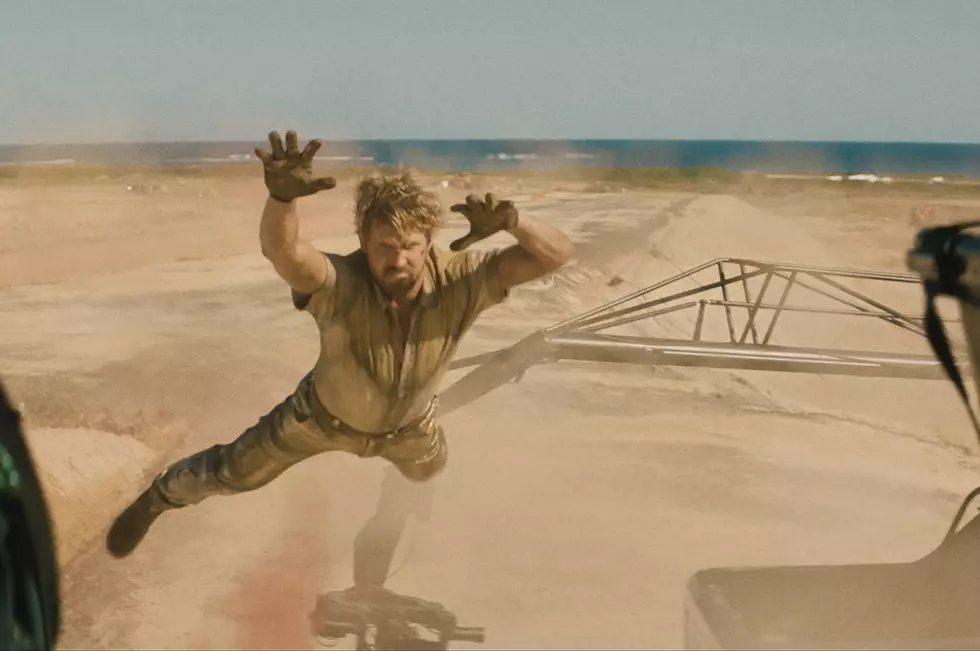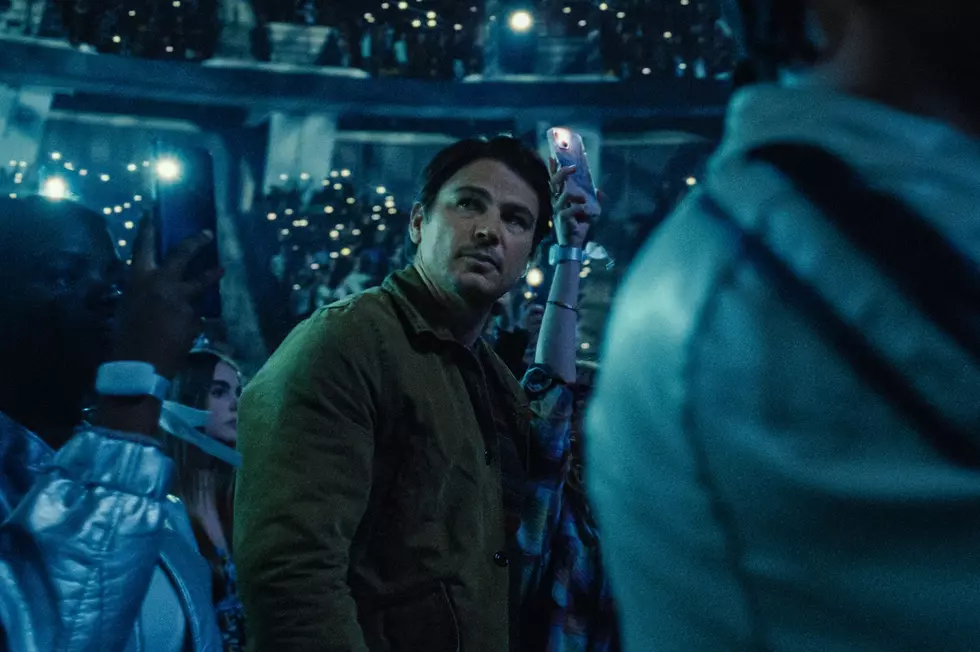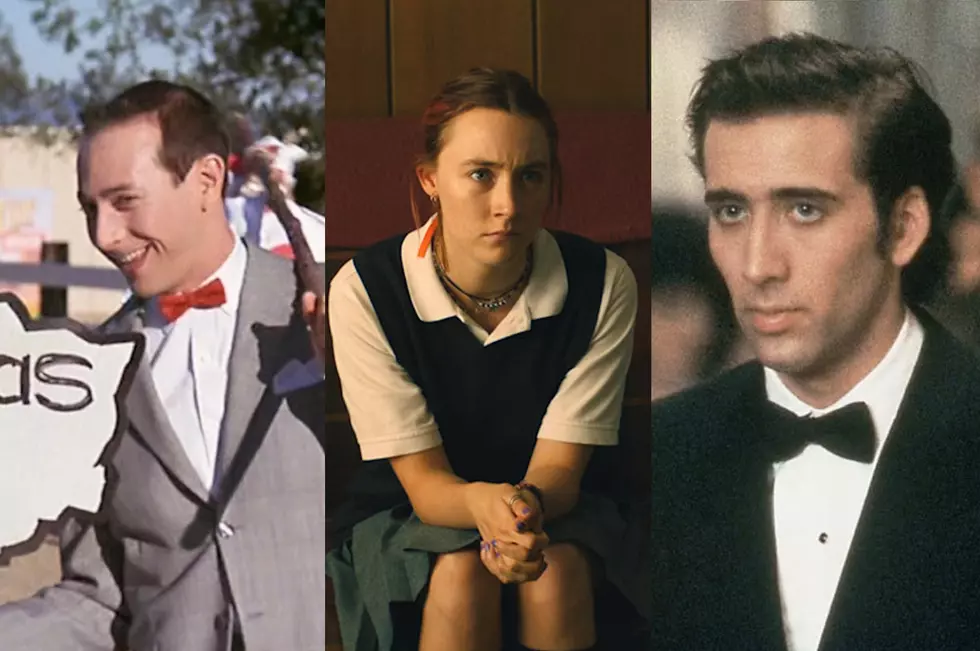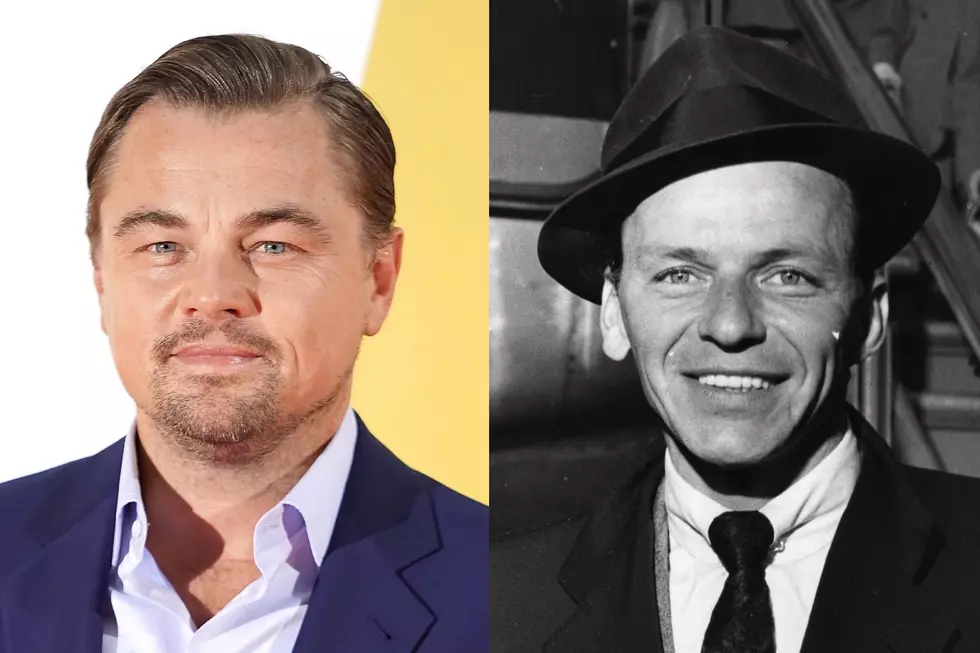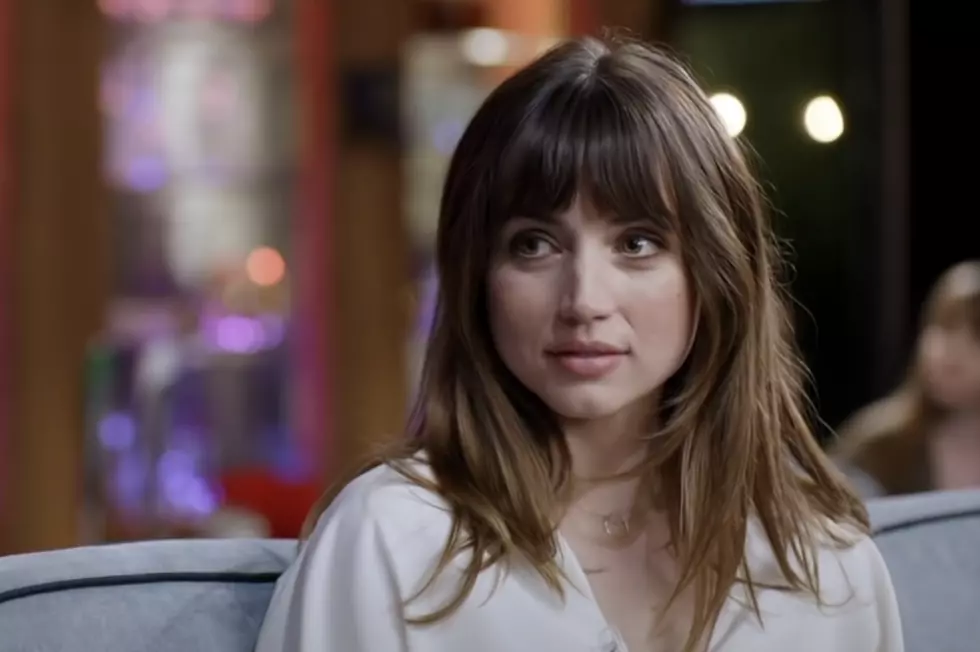
‘Sleepless Night’ Interview: Director Frederic Jardin and Star Tomer Sisley
Here's all you really need to know about 'Sleepless Night': 1. It is an action movie. 2. It is awesome. 3. If you like awesome action movies, you need to see it.
If our endorsement isn't enough, maybe this interview with the film's director and star - Frederic Jardin and Tomer Sisley respectively - will help convince you. We had the chance to speak with these talented gentlemen last month at the Tribeca Film Festival, where their film was playing before premiering on VOD (it also opens in theaters in New York City and Austin, TX today).
During our conversation, Jardin and Sisley explained the origins of their unforgettable film, the story of a bad father and worse cop who repeatedly risks his life to save his kidnapped son from a bunch of ruthless drug dealers. We also discussed the best ways to shoot and cut action onscreen, including a step-by-step breakdown of how they made one particularly memorable sequence: the "kitchen fight."
I guess with you sir and I mean looking at your filmography, this is sort of the first action movie that you have made is that right?
Frederic Jardin: Yes because the other films were comedies.
What made you sort of want to make this noir film?
FJ: The meeting with my producer. It was a desire of him. He wanted me to make a thriller. He saw this in my film that I did before.
He saw that potential in there?
FJ: Exactly. But I wanted to of course. In the very beginning I wanted to write something about a son and a father. Before the idea of an action film ya know? And something about a son and a father.
How did you get involved with the film? What point did you get on board?
Tomer Sisley: I read the script once and finished it. Then they offered me the film.
And that was it? No brainer?
TS: I immediately said yes. The script was really, really, really well written. It was very precise. Very precise.
(Laughs) And when you say that, what do you mean by very precise?
TS: Meaning a lot of details such as he stumbles and falls, details such as the visit. It takes a fraction of a second but I run downstairs and I stumble. And I fall and in the middle of people who dance.
The dance floor scene.
TS: The fact that I fall running down the stairs, usually you don’t read that in a script. Usually that comes the day you shoot it and the director says maybe if you fall it’s better. These kind of details. For example, something that they cut out but it was in the script. When I get on the toilet and I try to hide the bag of drugs in the fake ceiling. In the script it was written that my foot slips.
FJ: We shot that.
TS: Did we shoot that? No, We didn’t shoot that.
FJ: Si. Si. Si. Yes, we did.
TS: But you see these kind of details
They were built in the script?
FJ: Everything is complicated and it is not a super easy thing to do.
It is a very complicated script. We overhear someone talking, how it’s their second day at the club, and that becomes something your character is able to use at some point. How long did it take to put all of those little details in? How many drafts? It seems like such a wonderfully constructed thing.
FJ: Not very long, we wrote six or seven months. Yes.
That was it?
TS: How many different drafts?
FJ: Eight or nine. I forgot.
That seems like a lot?
FJ: Yeah it was quite a lot.
The location, the club, was that a real club? Or did you build it?
FJ: We built it. When I wrote the script the idea was to have just one place because we didn’t have too much money of course. It was a low budget film and the paradox is at the end it’s a production between France, Luxembourg and Belgium. So we had to shoot in Belgium, Luxembourg and France. So the club is in Belgium, the kitchen was in Luxembourg, the parking is in Luxemburg.
So the one location actually was in multiple places.
FJ: Exactly. It doesn’t exist for you.
It is seamless and I’m sort of flabbergasted, I’m shocked to hear you say that because it is so seamless in the film.
FJ: Of course it is invisible, or otherwise it would be terrible.
You were able to tailor the location to I guess as when you were writing you would say we want a scene in the kitchen where he can use all the kitchen gadgets. Is that how it worked? You basically wrote all the best locations that he can use?
FJ: Yes. It is extremely precise in the script all the places. The kitchen as you said, the stairwells, the VIP section, everything was very precise. It was like a mini world, different atmospheres.
Tomer, I was reading in your bio that it says you do all your own stunts. Why are you so passionate about it that you want to do all of them?
TS: Because I think that it is always better for the movie because it allows him to put the camera wherever he wants. Not having to shoot from behind so that nobody sees that it’s not me. Or having to cut me. I think that it makes his job easier and it’s better. Absolutely.
Can you take us through that big kitchen fight sequence in the film?
FJ: All that stuff wasn't in the script.
What did the script look like and how did you choreograph the fight on set?
FJ: In the script, it's a very important fight but it was just one page.
TS: One page? It was one line! "They fight in the kitchen."
FJ: The main idea was that we wanted a very long fight and usually in the film it's short. I wanted them to fight until they were exhausted. Like two dogs. I wanted the audience to almost smile at it. As it goes on again and again.
TS: When we watched it, Frederic said, "That looks real, not like a movie fight." I'm a fighter. I do lots of martial arts and boxing and jujitsu. I feel very comfortable using my body. But he said he wanted two dogs that never give up. And that's the whole idea with this fight. They cannot give up. If I give up, I lose my son. If he gives up, he goes to jail for the rest of his life. That was the idea. And the choreography, we had a stunt choreographer but when you work on low-budget movies…our choreographer, fighting was not his specialty. He was very honest about it. So we worked on the choreography before we had the location. We were thinking of what could happen in the kitchen but then we got to the kitchen and, for example, the drawers and said, "Oh maybe it would be cool to attack with the drawers…" We had to invent once we were on set. But it went pretty fast.
FJ: It had to look fast. Breathless. Covered in sweat. And blood.
TS: The whole challenge was to have Julian, the other actor, do the fight. Because he's not a physical actor at all. He didn't feel comfortable doing that. As far as I'm concerned, the big challenge was having him do the fight and having him look violent.
FJ: I wanted to have a fight that would be interesting for people who don't like fights in films. Not just for crazy people who like kung-fu movies. For women, girls, old ladies…
TS: I really, really love that fight. And what makes it work so well is all those moments where we don't fight. We just breathe a little bit. He's hurt, I'm on the floor and we're just trying to get our breath back. This makes all the rest look better.
How do each of you like to see action presented? Do you like the shaky cam style? Or a more static camera?
FJ: It's funny because before the film, I wasn't crazy about movies with too many shots with the camera on the shoulder. But now our film has the camera on the shoulder all the time. And we had a lot of shots of course. But I think it works for this film.
TS: But you're movie is not so shaky. It's not like the Jason Bourne kind of things. Or the last James Bond.
FJ: When it's too shaky, you lose the details.
TS: The shaky cam and all the cutting, they use that to hide things. If the fight is good enough and the actors do it well and it looks great, you don't have to cut it too much or use too many close-ups. Remember 'Oldboy'? Remember that shot?
Yeah, those are the type of fights you remember. Now, I know they want to make an American remake of the film. Who would you envision starring in an American version?
TS: I have no idea. Seriously, I don't know.
FJ: The question is, why do we sell our rights to the remake? That's the real question. It's an industry. So we need to make business for the next film. That's the reason. But for the main character, I have no idea. I'd like a black guy...
More From ScreenCrush


